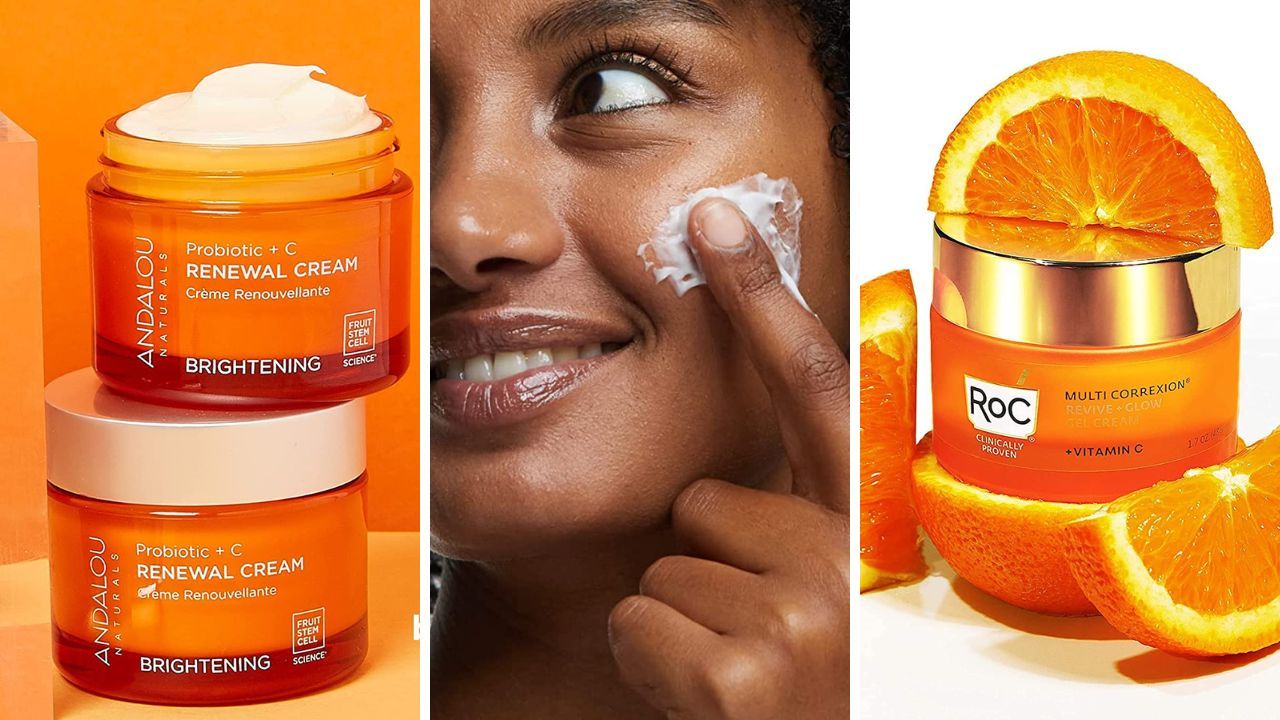Vitamin C Face Cream for ~Glowy~, Radiant, and Brighter Skin
Vitamin C face cream is an antioxidant skincare that offers to help reduce the appearance of dark spots, signs of aging, and uneven skin tone.

Vitamin C face cream is an example of a skin care product that is marketed as being a natural and healthy option. It can hydrate, plump skin, and enhance skin elasticity as well as reduce the visibility of acne scars, dark spots, and fine lines.
Vitamin C contains both potent antioxidant and anti-inflammatory properties, which can help to prevent discoloration and brown spots. Vitamin C has been found to be effective in stimulating collagen production and works even better when combined with other ingredients. It is recommended to not use excessive amounts of vitamin C products in one day so as to minimize the risk of skin irritation.
Dermatologists recommend the use of vitamin C as a key ingredient for skin care. They use it due to its effectiveness and efficiency, like many other skin-care ingredients. Vitamin C has antioxidant properties that help reduce melanin production in the skin.
With many forms of vitamin C available, it can be difficult to determine which one is right for you. L-ascorbic acid is the most effective product, however, it may not be suitable for those with sensitive skin.
Those with sensitivities may wish to consider a mild form of vitamin C for the same benefits. This product will be absorbed into the skin without causing irritation or dryness.
Vitamin C is best used in a concentrated formula for maximum benefits, though creams are an effective alternative when looking for intense skin hydration. These creams will help to keep your skin looking radiant.
Advanced Clinicals Vitamin C face cream contains a combination of Vitamin C, Ferulic Acid, and Aloe Vera which may improve the skin texture and radiance. The cream contains anti-aging ingredients to reduce the appearance of lines and wrinkles, as well as vitamin E to diminish discoloration, dark spots caused by sun damage, and hyperpigmentation. The product has a formula that absorbs quickly and won't cause residue or dry out the skin.
Andalou Naturals Probiotic + C Renewal Cream promotes skin health, providing a brighter, toned, and balanced look with the help of fruit stem cells and vitamin C. Andalou Naturals' range featuring vitamin C is designed to even skin tone and produce a natural glow for normal and oily skin types.
Several brands provide cost-effective products with measurable results. ROc's RoC Multi Correxion Revive + Glow Moisturizer provides a 10% concentration of ascorbic acid (L-ascorbic acid). RoC Multi Correxion Revive + Glow Moisturizer. This cream contains glycerin, peptides, and shea butter which enables deep absorption. What I love most about this cream is that it is a lightweight formula that doesn't feel heavy or greasy, so you can wear it during the daytime underneath makeup and sunscreen.
Frequently Asked Question
What does vitamin C cream do for your face?
Vitamin C has been associated with improved skin health, being particularly effective at boosting cell turnover and repairing damage caused by free radical damage, age spots, and premature aging. Dermatologists often recommend an ingredient that has shown positive results in both scientific studies and user reviews.
Should you use vitamin C on your face every day?
Vitamin C is an active ingredient with the potential for irritation so only apply it to your face a couple of times a day. It releases positive effects on the skin, but you'll want to make sure that what you're using has no more than 10% vitamin C in each formulation.
Should I use retinol or vitamin C?
Vitamin C is known to brighten the skin and help maintain healthy skin, while retinol has been noted for its positive effect on wrinkles and fine lines. Combining these 2 components into a skincare routine may improve the overall texture and brighter skin appearance.
Why should you not use vitamin C on your face?
AHAs and BHAs, such as glycolic, salicylic acid, and lactic acids should never be used together with Vitamin C! The pH balance will be thrown off if layering these ingredients together, which means the acid would not work properly.
Is vitamin C cream good for aging skin?
Vitamin C is widely used in anti-aging products. Research indicates that regular use for 12 weeks or more, may help to diminish wrinkles.
What type of vitamin C is best for skin aging?
Vitamin C, in the form of Ascorbic Acid, is commonly used in skincare. Hyaluronic acid is effective for skin care due to its ability to penetrate skin barriers and potentially decrease signs of aging for normal-skin types. This form of vitamin C, when used correctly, can offer anti-aging benefits.
How long does it take for vitamin C cream to work?
It typically takes 4 weeks for the skin to undergo a renewal cycle. If you continue to use Vitamin C, a subtle change in radiance should be noticeable.
Do you put vitamin C before or after moisturizer?
Applying Vitamin C serum is recommended in the morning after face cleaning, toning, and moisturizing. Regular application of Vitamin C serum increases its effectiveness.
Do I need hyaluronic acid and vitamin C?
Combining vitamin C and hyaluronic acid for skincare may offer more benefits than using them separately. Some of these effects are their own and some are due to a synergistic effect.
Can I use retinol and vitamin C together?
Including products containing retinol and vitamin C in your skin care routine may help to rejuvenate your skin and could be beneficial in the long run. These two ingredients have anti-aging properties and can also help protect your skin.
Which is better for older skin retinol or vitamin C?
If you have dull and dry skin, you may benefit from Vitamin C. Incorporating Retinol into your daily skincare routine may help reduce the appearance of fine lines and wrinkles. Combining these two ingredients can enhance your skin texture and support collagen production.

